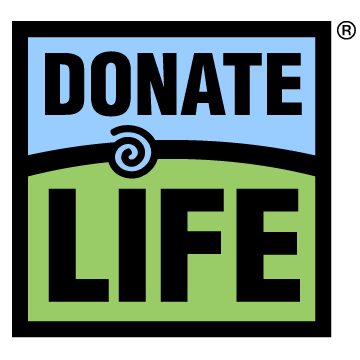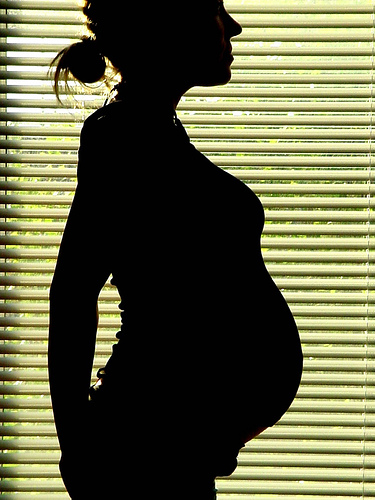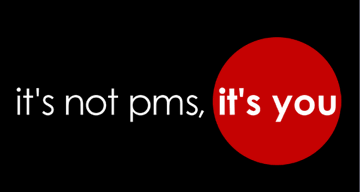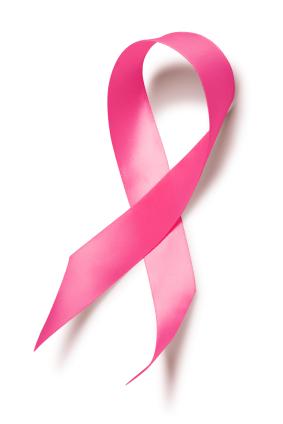Author Archives: Liz Lawler
September 12, 2013 by Liz Lawler
Jews, Drugs, and the Muck of Daily Life
 You are probably as mired in the muck of daily life as I am. I can hardly remember the last time I caught an inkling of magic or mystery. Having kids, a job, a dog to walk, all makes transcendence a bit of a reach. There is just something tugging at my sleeve at every turn. But it’s that very cacophony that makes the need for transcendence so pressing. And as we approach the High Holidays, this quandary has shifted to the front of my mind. This is supposedly a time of reflection, a reset button for the year. I generally take a pretty utilitarian view of religion. So, finding links between the body, the spirit and the psychotherapeutic appeals to me. Spiritual practice and religious connection can be a healing salve in a fragmented world, and fractured personal experience of said world. But how does one bridge the gap between the mundane and the sacred, between the body and mind? And since I’m so very busy and important, do I get to take a shortcut? I find myself tempted, in my haste towards bliss, to reach outside of myself for help from “my friends.” All of which has got me wondering about Jews and drugs, and the magical mystery tour that Judaic practice can be.
You are probably as mired in the muck of daily life as I am. I can hardly remember the last time I caught an inkling of magic or mystery. Having kids, a job, a dog to walk, all makes transcendence a bit of a reach. There is just something tugging at my sleeve at every turn. But it’s that very cacophony that makes the need for transcendence so pressing. And as we approach the High Holidays, this quandary has shifted to the front of my mind. This is supposedly a time of reflection, a reset button for the year. I generally take a pretty utilitarian view of religion. So, finding links between the body, the spirit and the psychotherapeutic appeals to me. Spiritual practice and religious connection can be a healing salve in a fragmented world, and fractured personal experience of said world. But how does one bridge the gap between the mundane and the sacred, between the body and mind? And since I’m so very busy and important, do I get to take a shortcut? I find myself tempted, in my haste towards bliss, to reach outside of myself for help from “my friends.” All of which has got me wondering about Jews and drugs, and the magical mystery tour that Judaic practice can be.
On the one hand, Judaism is largely non-ascetic. One of the more charming qualities of this religion is its perpetual celebration of the here and now, how Jews embrace the material world in all of its flavorful glory. Kashhrut is not about denial, it’s an awareness raising mechanism. And alcohol is written into the liturgy. What’s a Passover Seder or a Purim spiel without the steady flow of wine? There is a religiously sanctioned time to come unhinged, disconnect, and lose yourself in a lushly indulgent moment. So can we take this from disconnection and argue that substances can be used to re-connect? Instead of escapism, maybe they can motivate a grounding or rooting action, underscoring the re-absorbing effects of the holiday season. In this sense, the corporeal sphere of the body becomes (as Tantrikas believe) a field of discovery, a way of experiencing the world and G-d, merging with the organic whole. I guess, ultimately, I’m after a somatic experience of religion, something I don’t usually associate with Judaism.
Can I take this as license to use psychoactive substances? I’m not talking cocaine or heroin here. But I would love an excuse to eat a fistful of mushrooms and go floating through the park. It would seem that so do a lot of other Jews.
- No Comments
August 5, 2013 by Liz Lawler
Women, Work, and Monetizing Misfortune
Parenthood is like a tattoo, you don’t quite realize the unyielding permanence of the thing until it’s too late to turn back. This constancy yields endless opportunities for guilt and self-doubt. Decisions about childcare, for instance, are a major source of angst. Gabrielle Birkner’s recent article in this magazine brought some up for me. Thinking about nannies, daycare, and money summons feelings and knee-jerk opinions that I’m often loath to share in public. But here goes.
There are many angles from which to consider the question of childcare. Birkner discusses multiple family structures: single, married, single-income, dual income, etc. I come from the dual parent, 1.5 income category. I generate income, but really just enough to cover my tracks, shopping-wise. So why did I “choose” to limit my career to part-time and free-lance? Above all, I am home with my kids because I want to be. Because I believe that I am the best qualified to tend to their needs, and my husband makes enough to support us (that last bit is key, I know). We also did the math and realized that indeed, we would pay more in childcare than I made in my full time job. So the finances were simple enough. But certainly, for a single parent, the need for income and subsequently childcare compels you in the other direction. So your options become: nanny, secular day-care (or “early-learning center”) or now religious day-care, thanks to the growing number of religious institutions getting in on the act.
- No Comments
July 18, 2013 by Liz Lawler
Homeschooling While Orthodox
 I grew up peripherally aware of parochial schools. But most of what I knew concerned Catholic schools, land of the wealthy or otherwise unfit for public school. The Yeshiva system? That was an exotic new world I discovered post-conversion, along with gefilte-fish and dreidels. It is still largely mysterious to me, largely because it seems like the stuff more Orthodox Jews are made of. It is, unquestionably, training ground for a strong Jewish identity. In the mission statements of any yeshiva you pull up, you will find a reference to Torah, to heritage, often to Israel. Whether or not you feel like the educational standards are up to snuff, you can count on your kid identifying as a Jew upon graduation. But what goes into this machine? And what of those who don’t take this path? There is in fact, a small and growing contingent of Jewish families who have chosen to step outside of formal education.
I grew up peripherally aware of parochial schools. But most of what I knew concerned Catholic schools, land of the wealthy or otherwise unfit for public school. The Yeshiva system? That was an exotic new world I discovered post-conversion, along with gefilte-fish and dreidels. It is still largely mysterious to me, largely because it seems like the stuff more Orthodox Jews are made of. It is, unquestionably, training ground for a strong Jewish identity. In the mission statements of any yeshiva you pull up, you will find a reference to Torah, to heritage, often to Israel. Whether or not you feel like the educational standards are up to snuff, you can count on your kid identifying as a Jew upon graduation. But what goes into this machine? And what of those who don’t take this path? There is in fact, a small and growing contingent of Jewish families who have chosen to step outside of formal education.
As I mentioned in my last post, I have chosen to homeschool my son. But this is a minor rebellion on my part; I’m not really going against the community grain. For a Jewish family living in Orthodox Brooklyn, homeschooling represents a clear departure from the very orthodoxy they have been raised to respect. How can they make this choice and still balance their obligations to community and culture?
- No Comments
December 6, 2012 by Liz Lawler
Choosing to Homeschool
 What’s your gut reaction to homeschooling? Did you just wrinkle up your nose?
What’s your gut reaction to homeschooling? Did you just wrinkle up your nose?
I know, I know. You picture creepy misfits from huge families who all wear matching clothes. I used to see the same thing. Then I had a kid and I had to contemplate the hornet’s nest that is NYC schooling. The options aren’t great, so let’s just say we’ve settled on homeschooling for now.
And while I’m quite confident in this choice, I still get pretty evasive when acquaintances ask what preschool my kid will be attending. And with good reason. I get a handful of different reactions from people. 1) By far, the most common concern is whether or not my son will be “properly socialized.” Suggest keeping your kid out of school, and people scrutinize your child’s every “please” and “thank you.” God help you if he goes for too long without a haircut. 2) Some people become defensive and/or deeply suspicious. It’s as if our decision is a de-facto judgment upon theirs, or that we are threatening to unravel NYC’s flawless social fabric. 3) Many women act as if I just dumped my college degree in the shredder. “What about your career? WHAT ABOUT HAVING TIME FOR YOU?”
- 2 Comments
August 2, 2011 by Liz Lawler
Mourning Leiby Kletzky
 I found out about Leiby Kletzky’s death when I was settling into a yoga class. The instructor dedicated the class to him, adding that he had been found, and that he was not alive. She cried a little, and moved along. I didn’t know I was holding my breath about this case until I heard that and exhaled. I live just miles from where this happened, so had seen the missing-child signs go up.
I found out about Leiby Kletzky’s death when I was settling into a yoga class. The instructor dedicated the class to him, adding that he had been found, and that he was not alive. She cried a little, and moved along. I didn’t know I was holding my breath about this case until I heard that and exhaled. I live just miles from where this happened, so had seen the missing-child signs go up.
Something strange happens when you juxtapose grief with an intense physical experience. The mind can hollow you out with “what ifs.” So the body becomes a space of refuge. If you just follow your breath inward, you connect to a place where you can iron anguish out of your joints and sinews. Vinyasa flow classes are tough under the best of circumstances. Even for those of us who have put our time in on the mat. But try holding a five minute headstand with tears running across your forehead. That will teach you about equanimity in inversion, about using healthy fear to counterbalance an aching heart. The need to physicalize grief is powerful. As Jews we have K’riah, a small act of material destruction to speed catharsis. It lances the grief to the extent that such a small gesture can.
My favorite class is a darker shade of yoga, all squats and crouches, deep in the hip flexors, where you have to anchor to your pelvic floor to navigate the practice with any grace. This is not delicate, violet colored yoga, by any means. It reminds me that for all of the Shakti, there is Shiva. For each small delicate life, there will be a death. And it is reflected in my body. I feel vibrant after a strong practice, but the sides of my big toes have gone numb from years of picking up and jumping back (not me in video, btw). Even with all of the awareness that I have cultivated in certain areas of my body, some are going dark. The transaction does not yield a net gain. But those losses are tangible, calculable. Those losses are safer than facing the one that Leiby’s parents now have.
The Jewish story is one of physical exertion. The texts are full of runners and fighters, soldiers and slaves, men and angels lifting boulders, crossing desserts and dancing in times of joy. Physical pain is etched deeply in the narrative structure of this people; the physical scars match the emotional ones in their breadth and depth. Yet, these are people who carry on, both biblically and historically, in spite of physical duress. Abraham supposedly went out looking for guests shortly after circumcising himself. Job lost everything and still kept the faith. Biblical language often links emotional suffering and moral failings to specific body parts. There is talk of broken hearts, bones crushed as if by lions, etc. The body and the material world matter deeply in Judaism, they are evidence of the creative force that shapes us, and ground for discovery of self as an individual, but also in relationship to a larger communal whole. You are not just Jewish in your head and heart, but at the most basic cellular level, and then out again from that nucleus. Davening is an extension from that center, a pulsation. For it is not just a verbal recitation, it involves that rhythmic swaying and rocking. When I first saw it, to be perfectly frank, it reminded me of the self-soothing movement of autistic children, who often rock back and forth in place. But I think it just serves a similar purpose, a way to scratch a psycho-spiritual itch. My yoga practice is like that, rhythmic action, sometimes rote, sometimes frantic and breathless, but always an attempt to integrate body and spirit into some kind of vibrational whole. In spite of my sloppy spirituality, and semi-latent agnosticism, these stories still resonate with me. I feel sadness in the back of my throat and hovering around my temples.
This horrible thing happened in my town, and I imagine, horribly, my own child, disoriented and vulnerable, humbling himself to ask a stranger for help. I can catch the faintest aura of what Leiby’s family is experiencing, and it is blinding. So when I walked out of yoga, I had to wonder why no one else seemed upset. The city felt heartless and cold, and I felt alone. Then, a woman saw me crying on the F train, and, without a word of question, handed me a tissue. May we be able to extend that same compassion, many times over, to the family mauled by this murder.
- No Comments
May 31, 2011 by Liz Lawler
Chop Me Up For Spare Parts
 So, here is a pop quiz: are Jews allowed to donate organs? Yes.
So, here is a pop quiz: are Jews allowed to donate organs? Yes.
I ask, because it turns out that many people are wrong on this count. Enough Jews are wrong about it, that Israel has been fighting off a bad reputation in the organ donor community. Frankly, it is simple playground etiquette—unless you are willing to share what is yours, do not expect to play with anyone else’s toys. It seems that even those Jews who refuse to donate their own organs, are willing to accept donations from others. Israel accepts far, far more organs than it donates, and the lack of reciprocity is leading to unpleasant consequences.
This came up when I first entered the conversion process. I guess because we were discussing death rituals and life cycles, and the treatment of a Jewish death. How does one die Jewishly? Timing matters–most Jewish leaders agree that the moment of death is when your brain stem stops functioning. Were you to be kept alive, it would be in a purely vegetative state. Not much good to yourself or others. But there is apparently a small segment of ultra-orthodox Jews who believe that you are only dead once your heart stops beating. But there’s the rub. Organs, to be useful to anyone on this side of the fence, need to be harvested within 12-24 hours of brain death.
So, while live donations are largely un-problematic, it seems that organs harvested from the dead are a slightly stickier question. But really, only in small measure. Across the denominational spectrum, Rabbis have broadly stated that it is a mitzvah to save a life, and have encouraged their congregations to sign off on donor cards. So it is doubly infuriating to come up against this tiny little segment of the religious population that seems to hold such sway in the Jewish imagination. Since when do we allow a small faction of zealots to tell us how to die and how to apportion our bodies once we do? As a woman, I bristle at any man who tells me what to do with my body, even in death.
There is a controversial bit of legislation that has been bouncing around Israeli parliament for while. The law would allow those Jews who sign an organ donor card to move up the list if they are waiting for an organ. It has met some resistance, but seems pretty equitable. The law’s stated intent is to prevent “free riders,” those who take more than they give. I think of this refusal as a kind of hoarding, and of this hoarding as a defense mechanism, a response to a history of desecrated burial grounds and inhuman mass graves. But it is a truncated and two-dimensional approach to the questions of life, death and the significance of human remains. These are the people who hide behind talk of “bodily desecration,” rather than take a more nuanced view of the donation process. It boggles my mind to think that you, a Jew, might not want to save another person’s life. Aren’t you commanded to do so? This is the BIG one, the overriding commandment, the one for which you can break all of the others. And for all of our history of violence, mayhem, and the scabs and wounds that we still nurse after the last century, those rules are what keep us human, and keep us bound as a group.
At the end of the day, I think that we all have an instinctive urge to say no. I just renewed my driver’s license. And that little box really gave me pause—“check yes or no if you want to be an organ donor.” My immediate response was, “what….? I’m not going to die…. Who have you been talking to??” It took a couple of breaths to face the question and remember that these organs are borrowed elements. No amount of clinging will allow me to hold on to this heart, these lungs, or these kidneys. So line up, hopefully it will be a while, but you can have them when I am done taking my turn.
- No Comments
May 3, 2011 by Liz Lawler
The Passover Purge
 Are you gonna finish that? If you do, are you going to keep it down?
Are you gonna finish that? If you do, are you going to keep it down?
The Passover Purge has me thinking about bulimia and Jews. I hear the word “purge” and I go straight there. Koshering your kitchen for Passover is hard and thorough work. Under normal circumstances, this just marks a heightening of Jewish food awareness. It is a week of tip-toeing through grocery stores and restaurants, scanning ingredient lists for yeasty offenders. All of which is juxtaposed with the frantic Spring cleaning (the other day, my cleaning lady got three panicked phone calls in the span of two hours, from people trying to corner some help). At any rate, my train of thought went something like this: Passover, Jews, food, purging, neurosis, barfing = Jeworexia?
When I was converting, Jews kept telling me how every holiday is “ALL ABOUT FOOD, YAY!! You’ll love it, there’s food, there’s wine, and there are endless evenings around the table.” So: a mix of booze, food, ritual observance and family… Religious and familial drama unfolding in a place connected to nourishment–how can there not be a disproportionate number of Jewish women gagging up their food? (more…)
- No Comments
March 22, 2011 by Liz Lawler
Horton Hatches Her Own Egg: Yes, I had My Own Baby
My child was intended. Meaning—I intended his life, and intended to parent him. There was a decisive moment when we entered into “the process” so to speak. So I remember what it feels like to gaze wistfully at other people’s children, what it feels like to think, “yikes, what if it doesn’t happen for us?” The question was settled blessedly early. Getting and staying pregnant (at least this time around) was no problem. But certainly, I know how overwhelming that impulse is. I understand really wanting a kid.
 I wonder, in hindsight, what lengths I might have gone to in order to get one. IVF? Maybe. Adoption? Sure. Surrogacy…..? That one gives me pause. Could I really ask another woman to go through this (NSFW!) for me? I outsource many essential functions in my life: I have a hair stylist, a cleaning lady, a plumber. But is this really a task that I want to delegate? For one thing, cutting my hair and scrubbing my toilet don’t require the maid or my stylist to strip mine their own bodies.
I wonder, in hindsight, what lengths I might have gone to in order to get one. IVF? Maybe. Adoption? Sure. Surrogacy…..? That one gives me pause. Could I really ask another woman to go through this (NSFW!) for me? I outsource many essential functions in my life: I have a hair stylist, a cleaning lady, a plumber. But is this really a task that I want to delegate? For one thing, cutting my hair and scrubbing my toilet don’t require the maid or my stylist to strip mine their own bodies.
Elton John got me pondering this. I don’t normally spend much time on Sir Elton, but this caught my eye. He and his partner just welcomed a son, via surrogate. They had been denied an adoption due to Elton’s age and sexuality. So, surrogacy was the next step. The sexuality thing complicates the issue, this isn’t just about women’s or children’s rights; there is a civil rights angle to consider. Adoption is heavily and often arbitrarily policed, really the only realm of child-bearing/procurement that is. It is, sadly, easier to buy a kidney than it is to adopt a child. (more…)
- No Comments
January 3, 2011 by Liz Lawler
No, This Isn’t PMS: You Are Just Really Annoying
I did an about face this month. I decided to stop believing in PMS.
 It’s kind of pathetic, but I hadn’t even considered the culturally fabricated origins of this bio-myth until stumbling across this debate, in a blog that I sometimes read. It was kind of like finding out that the Tooth Fairy doesn’t exist—obvious in hindsight, but earth shattering in the moment.
It’s kind of pathetic, but I hadn’t even considered the culturally fabricated origins of this bio-myth until stumbling across this debate, in a blog that I sometimes read. It was kind of like finding out that the Tooth Fairy doesn’t exist—obvious in hindsight, but earth shattering in the moment.
Because let me be clear: I have blamed my hormones for a LOT.
Allow me to back up and clarify: hormones matter. In the months after weaning my son and moving from hormonal birth control to a barrier method, there was an, ahem, “adjustment period.” It was palpably related to my cycle, though my frustrations with early parenthood and the NY real estate market were also clear contributors (I mean really, who hasn’t wanted to kill their partner over a condo purchase?). The depression and anger came in waves that I could just glimpse before they engulfed me. But the dust has settled. I am also prone to, when surrounded by breastfeeding women, spring a leak, so to speak. The physical responses to hormonal changes are undeniable–cramps, bloating, fatigue, etc. (and might reasonably induce crankiness). But a dip in estrogen cannot be certifiably, medically equated with a loss of common sense, emotional balance, composure. Seriously, look it up. (more…)
- 2 Comments
December 22, 2010 by Liz Lawler
Strangled by a Pink Ribbon Or: Breast Reconstruction Surgery 101
 I do not have cancer. Or if I do, it’s still worming its weaselly way to the surface of my life. Like most people, I have relatives who have had various incarnations of the disease, some who have died of it. I was recently counseled by my doctor that given my family history, I should be tested for the BRCA1 and 2 genes. It has been on the back burner for several months now, a chore I know needs tending to, but one I’m loath to address. Because knowing that I am a carrier would leave me with the awful question of: what now? If I test positive, the good news is that my insurance will pay for a prophylactic mastectomy. And then, I’m entitled to a brand-new pair.
I do not have cancer. Or if I do, it’s still worming its weaselly way to the surface of my life. Like most people, I have relatives who have had various incarnations of the disease, some who have died of it. I was recently counseled by my doctor that given my family history, I should be tested for the BRCA1 and 2 genes. It has been on the back burner for several months now, a chore I know needs tending to, but one I’m loath to address. Because knowing that I am a carrier would leave me with the awful question of: what now? If I test positive, the good news is that my insurance will pay for a prophylactic mastectomy. And then, I’m entitled to a brand-new pair.
I am not particularly attached (other than at the literal, fleshy level) to these pointy little orbs on my chest. I am a scant A-cup. I really only wear a bra because of nipple decorum. I don’t “need the support” like some women, my pecs hold them up just fine. And though they fed my son, and still nourish my sexuality, I don’t think I would miss them terribly if they fell off altogether in the shower one day. This is how I feel today, on the front end of my childbearing years. But my maternal grandmother was diagnosed in her late thirties; do I really have the time to put this off? Do I have the luxury of being flippant? And as Jewish women, do you? If you carry the gene, you have an 85% chance of developing breast cancer and 60% of developing ovarian cancer by 70. A 2009 study noted that Ashkenazi women are 20 times more likely to be carriers of the gene than the non-Jewish population. There is some concern about genetic counseling being used to stigmatize Jews, but most simply take the statistic as strong caution to be vigilant. I might set aside my concerns over racial profiling if it could keep me alive (but I digress).
I recently took a teacher training program to learn to teach yoga to cancer survivors (if you are so inclined, this is the one to take, IMHO). Tari devoted a large portion of the program to the challenges posed by the “reconstructive surgery” process. It turns out that, in an effort to return women to “femininity” and “normalcy” (not my words), we end up limiting their range of motion.
So how do you rebuild a breast? (more…)
- 4 Comments
 Please wait...
Please wait...
